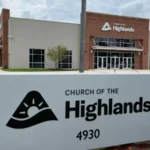Solstice West RTC Abuse: The prospering worries with respect to the treatment of inhabitants at Solstice West Residential Treatment Center (Solstice West RTC) have incited a careful examination concerning its functional strategies and moral contemplations. This assessment is predicated upon various direct records, checked tributes, and an intensive survey of administrative consistence documentation.
The aim of this talk isn’t just to project slanders however to develop a story grounded as a matter of fact, and buttressed by the standards of responsibility and integrity. The remarkable quality of such a request couldn’t possibly be more significant, as it relates straightforwardly to the government assistance of weak people set under the consideration of indicated rehabilitative organizations. Thus, this record tries to take apart and clarify the diverse components of the supposed maltreatments, with a steady obligation to accuracy, decency, and understanding.
The Quiet Wars of Solstice West RTC Abuse
The term ‘misuse’ invokes a recognizable original of actual hostility, profound control, and mental torment. However, when it saturates the walls of particular consideration offices, it appears in unobtrusive yet slippery ways. Solstice West RTC, like many other such centers, has been the subject of alarming allegations that point to a systemic issue within the framework of its operations.
For some, abuse infers overt cruelty; however, in the context of Solstice West RTC, it envelops a spectrum that includes but is not limited to:
- Physical Abuse: Records of staff causing actual damage as a type of discipline or limitation.
- Psychological Abuse: Deliberate strategies to undermine an individual’s sense of self-worth through humiliation, isolation, or intimidation.
- Neglect: Disappointments to give sufficient consideration, management, and backing, prompting misery or damage to the occupants.
- Abuse of Authority: Abuse of force and control by staff, prompting, straightforwardly or by implication, inconvenient ramifications for the youthful occupants’ prosperity.
These frightening encounters leave the people deprived of their independence and feeling of safety, frequently with injury that waits long after they have left the middle.
The Dark Side of Rehabilitation

The impacts of such abuse stretch out past the walls of Solstice West RTC, making serious harm the psychological and close to home prosperity of its inhabitants. Research shows that people who have encountered maltreatment in private treatment communities are at a higher gamble for creating tension, melancholy, post-traumatic stress disorder (PTSD), and other mental issues. The very establishments entrusted with giving consideration and backing wind up worsening fundamental issues, making an endless loop of torment.
Shedding Light for Change
It is basic to deliver these shameful acts once again from the shadows and consider establishments responsible for the mischief they cause. By revealing insight into Solstice West RTC abuse, we give voice to survivors as well as work towards making a more secure and more moral arrangement of care. It is vital to request straightforwardness, thorough oversight, and nonstop improvement in the tasks of such offices. Exclusively by focusing a light on these issues might we at any point prepare for genuine change and mending for the people who look for it.
The Ripple of Trauma and Its Long-Term Effects

The impact of abuse reverberates beyond the immediate recipient. Families depend these establishments with their friends and family in the intense conviction that they will be returning home to a more promising time to come. At the point when the truth misses the mark, it covers not just the person in that frame of mind of torment yet in addition pollutes the family’s expectation with a severe persistent flavor of disloyalty.
Families report a differed size of injury and long haul impacts, for example, PTSD, trust issues, and a battle to adapt once more into local area settings.These effects underscore the gravity of the problem — a profound betrayal of trust rooted in the fundamental breakdown of the system’s duty of care.
Rising Against Injustice
In recent years, legal cogs have begun turning in response to the outcry. Investigations into the practices of Solstice West RTC and other similar establishments seek to bring to light the darker underbelly that has long festered in the shadows.
Beyond the corridors of justice, support networks for the victims have burgeoned, providing platforms for them to share their experiences, find solace with others navigating similar paths, and ultimately, to reclaim their narratives.
Out of Darkness, A Call to Action
The road to healing and reform is arduous, demanding a collective will to acknowledge and address the systemic flaws. But this process must also be marked by a call to individual action. Whether through sharing one’s story, supporting advocacy groups, or shaping legislative change, each effort serves as a photon in the darkness — coming together to illuminate a path forward.
For those grappling with the aftermath of Solstice West RTC, know that the collective voice of survivors and champions of reform is growing louder. It demands to be heard, to be reckoned with, and, most vitally, to be the harbinger of change.
In a society that heralds the protection and nurturing of its most vulnerable members, it is crucial to hold institutions accountable, wield regulations with rigidity, and foster environments that truly embody the ethos of care and rehabilitation. Only then can the promise of places like Solstice West RTC be more than just a whisper in a cacophony of injustice. It can be a resonant, credible vow of transformation. Keep the conversation alive. Your voice is indispensable in this symphony of change.
Conclusion
In sum, the tale of Solstice West RTC is but one of many threads in a broader fabric of systemic issues plaguing rehabilitative care institutions across the nation. The allegations and testimonies paint a picture not just of isolated instances of misconduct, but of a pervasive culture where the failings of a few reflect on the integrity of the many. The source of inspiration is clear and certain: general public all in all should challenge, examine, and change the practices and strategies of these supposed sanctuaries of recuperating.
This isn’t just an issue of administrative consistence; it is an ethical basic to maintain the pride, regard, and prosperity of each and every person who looks for help in their most weak minutes. To overlook or excuse the voices of those impacted is to be complicit in the propagation of bad form. The way to correction is long and full of difficulties, however it is a fundamental excursion to guarantee that the commitment of recovery is certainly not a bogus expectation yet an unmistakable, feasible reality. The tradition of Solstice West RTC and comparable establishments should not be one of damage, but rather an impetus for sincere and persevering through change.
Frequently Asked Questions (FAQs)
Q: What is Solstice West RTC?
A: Solstice West RTC is a residential treatment center intended for the recovery of youthful people. Its point is to give helpful consideration to social and intense subject matters.
Q: Why has Solstice West RTC come under scrutiny?
A: Allegations of abuse, including physical, emotional, and psychological mistreatment, have been raised by previous inhabitants, prompting investigation and calls for fundamental change.
Q: What are the long-term effects of the abuse reported at Solstice West RTC?
A: Former residents report struggling with PTSD, anxiety, depression, trust issues, and difficulties readjusting to community settings, among other long-term psychological impacts.
Q: What actions are being taken against Solstice West RTC?
A: Legal investigations and the creation of victim support networks are underway to address and remedy the harm caused. Advocacy for regulatory reform and increased transparency is also being pursued.
Q: How can individuals contribute to the reform process? A: Individuals can aid reform efforts by sharing their stories, supporting advocacy groups, engaging in legislative processes, and fostering broader public awareness about the issues at hand.










